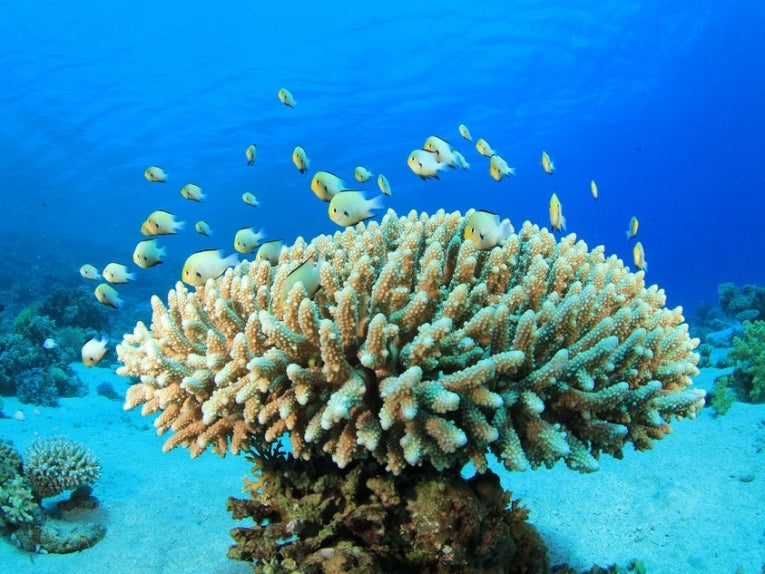The three hazards associated with climate change that affect the marine environment are no strangers to air and land either. As temperature has caused ice to melt and currents to change, the oceans have increased in temperature more than the land. As oxygen remains dissolved best in colder water, this creates oxygen deficits in the warm water to varied extents. The acid of CO2 (carbonic acid) and other gases affects seawater differently from its global warming effect in the atmosphere. That additional acidity gained from carbon dioxide in sea water is affecting many species with calcareous shells and having the most significant effect on hard corals, which also use calcium carbonate to build their home
Sea butterflies, which are an odd planktonic mollusc, have just been found to be profoundly affected. Living in the Antarctic, little notice was taken of them until Nature published N. Bednarshek and his associates' paper in 2012. Science then finally established that their role in the plankton is integral. Their shells are tiny, but these prey organisms for many fish species are critical in maintaining the whole ecosystem. As plankton, they form the base of the food web.
Meanwhile, the loss of, first, Caribbean coral reefs and then others worldwide has alerted scientists to coral whitening. Partly health-based, but largely down to warming currents forcing the algae partners of coral to desert their homes, this "disease" seems due to acidification of sea water. The Acropora coral shown above is left dead and white, while only cooling can restore young corals to the reef.
Dead zones in the ocean are areas where dissolved oxygen is almost lost. These areas have increased by 1000% in 50 years. Agricultural fertilizer causes dead areas near river mouths, while global warming is causing very similar effects on the high seas. The normal mixing of sea layers is inhibited by warmer sea temperatures, so the lower zone where oxygen rarely reaches is becoming another larger dead zone. Blue marlin, Makaira nigricans, for example is now much more restricted in the Atlantic simply because of oxygen levels. Lothar Stramma of the Leibniz Institute of Marine Sciences in Keil and his co-workers drew attention last year in, Nature, to these effects on tropical pelagic fish. They also affect tuna species and billfishes particularly harshly. The constantly-reported reduction in pelagic predator communities could well be influenced by this OMZ, or oxygen minimum zone!
Acidification comes from CO2 dissolution, which is largely the result of human activity. Food supplies from sea fish and many other sources will probably be reduced by the acid problem and cause large food reductions to several already famine-hit areas. With a healthier marine situation, rebuilding fish stocks and an end to the trawling that reduces the seabed to a bed of rubble, the marine ecosystems could possibly begin some auto-recovery.

A Lithodes sp. of king crab, one of several stone and king crabs responding to global warming by colonising European and Russian coasts; King Crab Image Credit: © Shutterstock
Crab species such as Lithodes spp. that invade northern shores are some of the organisms actually capitalising on the rising thermometer. They have been joined, in a way, by the movement of the sub-Antarctican king or stone crab, Neolithodes yaldwini, further and further south.
As well as temperature, oxygen and acid effects, many other forms of pollution are now recorded in the seas. Right whale, Eubalaena glacialis, stress caused by the underwater noise made by ships has been recently documented by Rosalind M. Rolland, et al of the New England Aquarium in Boston, US. Such extra problems are unconnected with global warming, but more and more of these, as well as warming-affected events are appearing every year that we allow it to progress. But of course this is not progress. This regression is taking us beyond any similar acidification in geological history. As far as warming is concerned, it's true the seas have been warmed before, but never when our present ecosystems have been pre-adjusted as they are to currents, ice and seasons.










